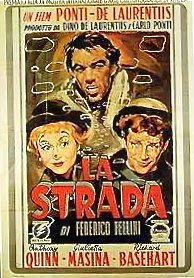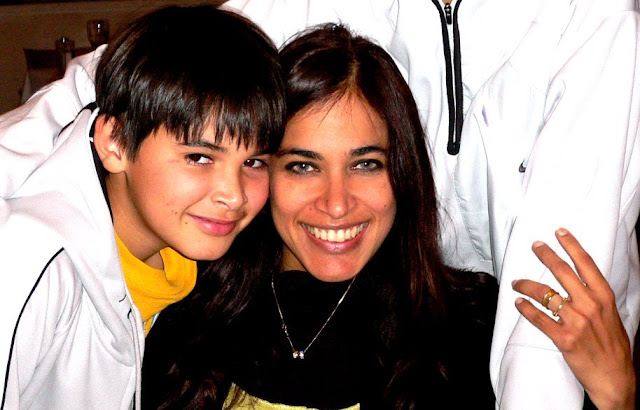
I read Eric Berne's book
'Games People Play' many years ago, and it continues to illuminate how and why people behave as they do.
Sally Bampton, who's wonderful advice articles are the only thing I look at in the Sunday papers, referred to it recently and I went back to read it again.
Games People PlayPeople often live their lives by consistently and predictably playing out identifiable games in their inner and interpersonal relationships. They play games to avoid reality, conceal ulterior motives, rationalize their reactive behavior or to avoid the responsibility of active participation in life situations. The principal characteristics of these games are that they are played by the child or parent ego and could generally be ended quickly if people remained the 'adult' state (generally known as 'being a grown up')
Most games have some or all of these characteristics:
They are repetitive: people play out their favorite game time and time again
They are played without adult awareness. People start and get drawn into their game without being aware they are doing it — until the game is finished and they then ask themselves: “how did that happen?”
There is always something happening underneath the surface that is very different from what the outside world sees happening. For example, I may tell my wife that everything is fine when, in fact, I am refusing to get into a conversation with her because I am angry.
Some of the more common games are:
Now I've Got You, You Son-of-a Bitch (NIGYSOB)
Used to justify anger that has built up over an extended time period. The aggressor (usually unconscious) identifies their victim, sets up a trap and springs it as a form of getting even or gaining perceived power.
Ain' t It AwfulPerson overtly expresses distress, but it is covertly gratified at the prospect of the satisfaction they can wring from their misfortune.
BlemishPerson seeks to find the blemish or weakness in another or themselves. They exploit others around the discovered blemish from an authoritarian posture. In themselves, it is used for negative reinforcement for inability to perform.
Why Don't you... Yes, ButPlayed out as a person presents a problem while others present solutions — each beginning with “Why don’t you...?” followed by the objection, “Yes, but...”. The payoff is the silence or masked objection when the solution giver has exhausted their data bank of solutions. This gives the “Yes, but” player evidence that they have won by demonstrating that it is the other person who is inadequate.
If It Weren't For YouCommon games played between spouses as a means of avoiding responsibility for individual decisions.
Look What You Made Me DoPlayed by someone who is feeling hurt and angry, who becomes engrossed in an activity which tends to isolate them from people. When interrupted, an accident or error occurs. Player then turns on the interrupter. Also used to avoid failure in a task the player is angry about having to do or does not know exactly how to do.
Let's You and Him FightPlayer (often a woman) maneuvers two others into fighting. She aligns herself with the winner. Sometimes, while the two are fighting, she will align herself with a third party who appears to be above fighting or sees honest competition as a fool's game.
Wooden Leg
Used to excuse dysfunctional behavior. “What do you expect of a person with a wooden leg?” Often used in statement form, i.e., “I'm a redhead and have a temper”, or “I drink because I’m Irish”, etc.
Kick Me
Played by people whose social manner invites them to be kicked. If people will not kick them, they will behave more and more provocatively until they have exceeded the limits, thereby forcing them to oblige. The jilted. . .the job losers.., the rejected.
Conditional LoveI will love you if... then comes the checklist. If you don’t accept my checklist in every way, I’ll withdraw attention, acceptance, affection.
Push-Pull ('The Cat')Played by people who have a fear of closeness/intimacy but are also afraid of being left alone. They will entice or seduce the other person to come close, open up and then when the person has opened up, the push-pull player will retreat, leaving the other person confused.
The Three Roles in GamesAll games are played unconsciously when we experience a threat. Game playing serves the purpose of blaming others for our bad feelings/experience. Below are the three role-positions we can play and the characteristics of those roles:
Each one of us employs consistent patterns of defensiveness to protect our self-image from people and situations that we subconsciously sense are a threat or even an outright assault. We created ourselves that way pretty early in life, when we thought that’s what we had to do to survive, to be accepted, to fit in.
These “games” are subtle. The bad feelings involved and the destructive outcomes are readily observable, but generally after they have taken their toll in hurt feelings, fractured relationships, repeated conflict, etc.
Berne believed that if he could help us become more familiar with these unaware game patterns with their typical “play-out” steps and sequencing, we would be able to recognize them more readily. Then we could work on getting better at catching them really early, so we could make either/both of two informed choices:
In games, there are at least two, and sometimes three, possible roles people can choose to play, and the choice is always made from unawareness. These roles are: Victim, Rescuer, and Persecutor.
A game can be initiated from any position, and the other player(s) can join in from any other position. In some games, players move from one role to another during the play out of the game. Often, one player is engaged in a game and the other player is working a different game in response.
In every game, the people who are part of the game — persecutors, victims, rescuers — almost always end up with a bad feeling. They know something is going wrong, or has gone wrong, and they do not know how to fix it.
Persecutor Games
A persecutor tends to put people down, belittle them, diminish them. His/her game usually begins from the unaware belief that “the best defense is a good offense”.
NIGYSOBManager Simon feels growing doubts about his own capacity to complete a project. He “delegates” the project to a subordinate, Georgie. Simon picks Georgie because she doesn’t usually question or challenge his motives or responsibility.
Since Simon wants to be seen as a responsible manager, he provides some seemingly appropriate level of resources (monetary, human, technical) to help Georgie in her work. A timeline is set, which usually is unrealistic given Georgie’s competency, resources or other responsibilities. Simon leaves the task completely in Georgie’s hands, or at best, provides occasional and brief “check-ins” to see how the job is going. Georgie can be counted on to tell him the job is going well, to protect her own inadequacy, and because she hopes that she will be able to pull it off by the deadline. Of course, Georgie comes up short, and when Simon finally checks on the job and finds out, he attacks Georgie and blames her for making a mess of the job. Having set her up to fail, he is able to point to her failure as the defense against his own responsibility in the failure: “It just proves if you want something done right, you’ve got to do it yourself.”
BlemishNaomi, the Audit Manager in the Finance Department, is presented with a first draft audit report by Alissa. Naomi looks it over, and then asks Alissa: “How long did it take you to do this?” “Three weeks” Naomi says. Naomi: “I can’t believe you could spend that much time on this and here are three typos right here on the first page!”
This game is set up by Naomi, who forgets (?) she has not informed Alissa that she expects her to check for misspelled words as a standard procedure before presenting her a draft report for review. Further, Naomi can demonstrate how smart she is to be able to notice spelling errors, and how dumb Alissa is to have made them. Naomi gets to feel angry (disappointed) in Alissa. Alissa gets to feel stupid and maybe even hurt, since Naomi did not recognize the hard work that she put into doing and reporting what she saw as the major task: correctly accounting for the audit.
GotchaCharlie is skeptical about Frances’s capability to lead the marketing campaign to win back market share from their competitor. It shows up in a meeting in front of her boss:
Charlie: “Would you say that we are positioning ourselves to fend off the threat from Wackie Co?”
Frances: “Of course. This marketing strategy is targeted directly at their weakness”
Charlie: “How much of a market share do they have with their product?”
Frances: “I’m not really sure. Probably less than 10%”
Tim: (GOTCHA!) “You don’t know what you’re talking about! The Financial Times article yesterday quotes Deloittes saying that Wackie has 60% market share in Manchester, London and York. Your strategy may help us stay on top, but it sure isn’t aggressive enough to win back market share in those areas!”
Similar to NIGYSOB, this game has more of an ambush flavor.
Top DogA person plays this game to stay on top, to not lose, and to make the other person lose. So any number of rationalizations get made by the bully to justify their position. They find this most useful when they can get someone to argue with them, but they will usually target someone whom they can count on to (eventually) buckle under and let them win.
Victim GamesFor inveterate players of victim games, the best winning strategy is to take it on the chin and either come back for more or run from the threat. That’s because the victim believes: “I’m not capable of solving my own problems — you must do it for me.”
Kick Me/UnderdogHerry agrees to work on a project for his superior, Ayako. Ayako seems thrilled to have him. It’s widely known that she has pretty high standards, but neither Herry nor Ayako initiate any discussion of expectations for the project. But when Herry delivers the work product to Ayako, she immediately butchers it! Herry has set himself up for Ayako to persecute him, but he blames her for his anger and hurt, rather than acknowledging his role in the drama: not getting specific enough up front to be able to do a good job.
Poor Me, Pity Me: Ain't It Awful?Kate always has an excuse. Like the schoolgirl who can never turn in her homework “because the dog ate it,” Kate similarly finds reasons beyond her control that things don’t work for her (Ain’t it Awful?) Her car is in the garage, so she can’t make the meeting; her neighbour has to go to the hospital and she spent time watching her children so she was late with her mortgage payment; she didn’t get paper for the printer because she only buys 50% recycled content and the store only had 25%; etc. She will engage others to try to help her overcome her difficulties (rescue her), but she really doesn’t want their help. . . she just wants to go on being a victim (Poor Me, Pity Me)
Withhold/Withdraw
Nick gets upset whenever Julian comes to class. Julian always speaks with the other classmates in their team projects, and has a charisma about him to which the other classmates gravitate. Although Nick has been named team coordinator, it is clear that Julian has the real personal power. So Nick just clams up, doesn’t engage Julian in conversation, will not confront Julian with his feelings. He would rather experience the smoldering hurt of the victim role and blame Julian’s persecution.
Wooden Leg/ThreadbareThese games are similar, but with different rationales.
In Wooden Leg, Joanna blames her lack of promotion for having been stuck with Roger, not known to be a strong leader (her Wooden Leg that keeps her from advancing more quickly). Although Joanna has done nothing to distinguish herself while working for Roger, she blames him for her lack of advancement, and looks for someone to come rescue her.
In Threadbare, Richard blames his poor performance on the outdated computer system that is provided for him. He reasons that it is the computer, rather than his own lack of competence or initiative, that keeps him from better performance, despite the fact that the others in his department produce better results with the same kind of resources. At any rate, he can blame his hurt on the mangers who won’t buy him a new computer (the imaginary persecutors), while beseeching them to rescue him by getting him a better system
Hurried/Harried/HassledBelinda can’t ever seem to get her life under control. She always seems to have more on her plate than she can take care of, and she is frenetically flying from one project and meeting to another. Whether it’s servicing her accounts, serving as Amnesty International coordinator or preparing birthday surprises for her fellow employees, neighbours and family, she is always busy. Although she may have good intentions, she fails to do anything really well, and she blames her failures on all her responsibilities, or even her boss or staff, who “expect” her to fulfill all these responsibilities. She chooses not to see that she is the one who piled on each of her responsibilities. It’s easier and more comfortable to blame her harried/hassled feelings on the “expectations of others.”
Look How Hard I TriedEdward worked hard at finishing the audit, spending many late nights at the office. Unfortunately, he did not use standard auditing procedures, nor did he ask for assistance in framing how he would do the audit. When his superior sees his report, she can’t believe he could work that hard for something that doesn’t present what she know their clients need to guide their decisions. She questions his competence, to which he can defend his actions stating “Look How Hard I Tried.’ He clings to the belief that effort should be the measuring stick instead of results, and so remains trapped in a victim role.
Sunnyside Up/Pollyanna
Richard calls himself an optimist. Whenever something goes wrong, he always “looks on the bright side of things.” When Gazette Ltd canceled their account with him, he just smiled and said it must have been for the best, and “we’ll keep ‘em next time”. He skirts the negatives in his world, rationalizing that it doesn’t do him any good anyway. Through his Pollyanna outlook, he is seeking to rescue himself from fear and hurt that things don’t always go well in the world.
While optimism can engender high spirits and a can-do environment, Richard’s unconsciously extreme attitude shuts him off from learning that comes from experiencing failing. This game can be played very subtly, with many rationalizations, thus it is very hard for the Self-rescuer to root out and identify.
Why Don't You...Yes, But...
This game usually demonstrates the role-shift possibilities very dramatically. The victim subtly seeking to be rescued finds him/herself sliding into the role of persecuting his/her rescuer and turning him or her into the victim.
Louise tells Tom about the difficulties in her office. No one will follow the scheduling procedure that she set up, even though th.ey swore to her that they would. She comes to Tom dripping frustration and hurt.
Louise: “What am I going to do? I’ve tried everything! This whole thing is coming apart. And, I’m going to look really bad before this is over.”
Tom: “Why don’t you talk to them about it?”
Louise: “Well, I tried, but they still keep on avoiding following through.”
Tom: “Well, why don’t you reward those that do keep up with their schedule?”
Louise: “That won’t work because there’s only one out of nine that do it!”
Tom: “Why don’t you publish their names and follow-through reports?”
Louise: “Why don’t you just listen to me and let me figure it out on my own! I was just trying to tell you how I feel for crying out loud!”
Whether the victim turns persecutor and the rescuer turns victim can occur relatively quickly as in this scenario. It can also occur over a longer duration. Either way, the Why Don ‘t You... Yes, But...garnes is a defensive strategy for the rescuer who may be feeling afraid that he won’t be able to solve the problem and rescue the victim, and therefore risk being seen as incompetent, not pleasing, irresponsible, not a very effective problem-solver. When he can’t solve the problem, he shifts himself (frequently with help) into the victim role, or rationalizes it as the other person’s fault, reinforcing his own rescuer-role and script.
I Was Only Trying to Help!
This is the painful, angry end-game of the failed rescuer. Once Louise turns on Tom, he replies that he was only trying to help. This justification is really more of a victim game than a rescuer game in its initial response. However, as the discussion continues, the premise becomes that the rescuer sees himself as justified in his role, returning the victim to theirs. Continuing from the dialogue above:
Tom: “Louise, you know I was only trying to help. If you don’t want my help, then why did you ask for it?”
Louise: “I didn’t ask for it. I was just telling you about what’s going on at work, and you just started telling me what to do.”
Tom: “No, I was making suggestions about what you could do.”
Louise: “Well, it sounded like you were telling me what to do.”





















